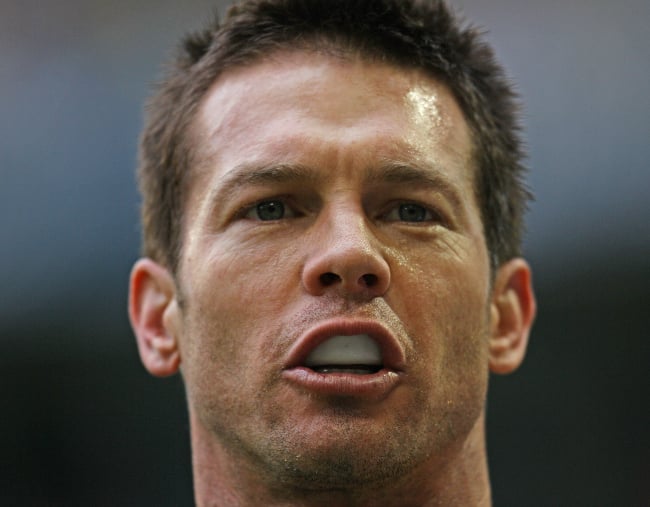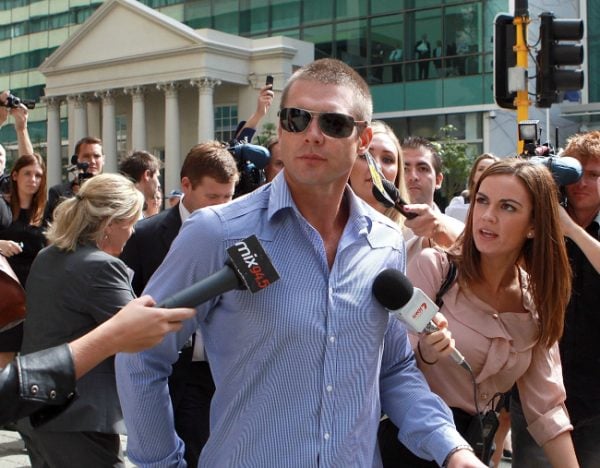
He’s considered one of the greatest players ever to wear the West Coast jersey and one of the best midfielders of his era.
But when most of us hear the name Ben Cousins, it’s not his 270 games, his premiership win or his Brownlow Medal that forms front of mind.
It’s words like ‘troubled’, like ‘addiction’ and ‘disgraced’; the kind that have anchored scores of headlines in the eight years since his retirement.
Just last week, the 40-year-old father of two faced court over a slew of drug, stalking and burglary charges, most of which related to breaching a restraining order taken out by his former partner, Maylea Tinecheff.
Armadale Magistrates Court heard allegations that, on one occasion, Cousins climbed into Tinecheff’s car clutching a screwdriver and said: “I can’t wait to use it”.
He later allegedly threatened: “I’m going to kill you. I’m going to take your life and your freedom and the things you love the most”.
Cousins, who currently has no fixed address, also allegedly said he was going to bury her “where she would survive for a couple of days” then he would “bring the kids to play, so she would hear them but would not be able to get to them”.
After he was denied bail on Tuesday, many expressed their compassion toward the clearly unwell man. There were even opinions penned about how he “deserves our sympathy”, rather than our ridicule. But for the rest, he’s crossed a threshold beyond the tragic fallen star trope, because as radio host and author Meshel Laurie noted, he is no longer the biggest victim of his downfall.
“Sorry,” Laurie wrote on Instagram. “But I reckon the lady he’s been stalking and threatening to kill deserves our sympathy first.”






























































































